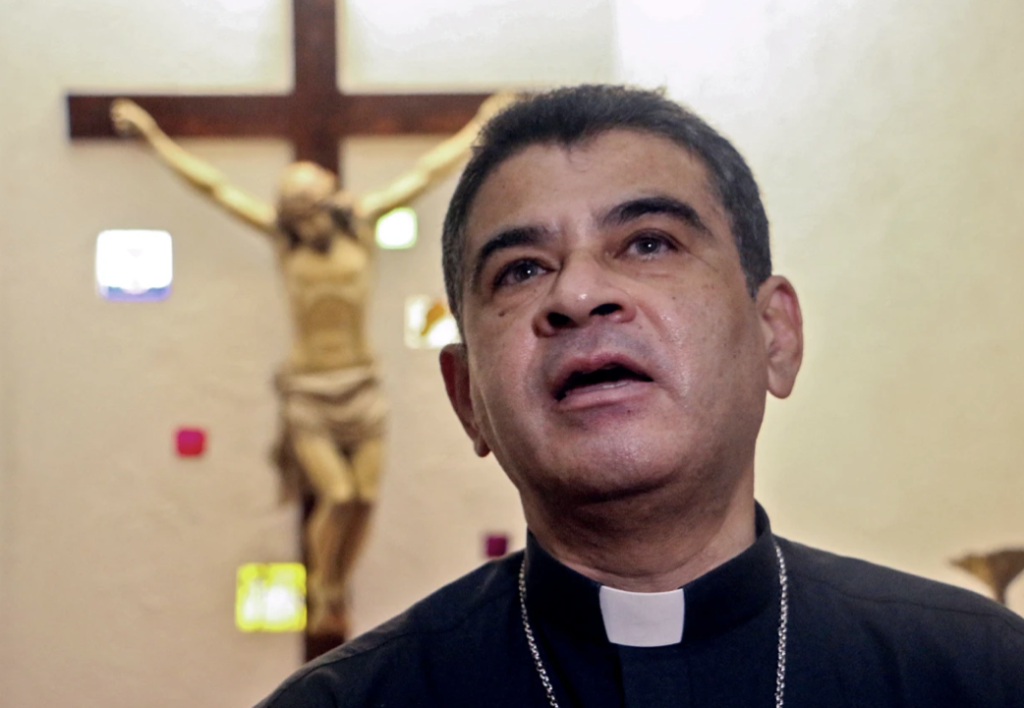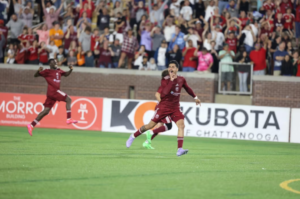Nicaraguan Bishop Arrested and Sentenced to 26 Years in Prison

Image Courtesy of AFP
By Daniel Formella
On February 10, persecution against the Catholic Church and political opponents continued in Nicaragua when President Daniel Ortega’s regime sentenced Bishop Rolando Álvarez to 26 years in prison for refusing to board a plane carrying 222 other political exiles to the United States. The charges against Bishop Álvarez included treason to the homeland, stripping him of his Nicaraguan citizenship.
In November 2021, President Ortega won a fourth consecutive term in elections that were widely seen as fraudulent. Since then, the former Marxist guerilla continued abusing political power by attacking critics and opponents of the regime, especially the leadership of the Catholic Church. In March 2022, the Ortega regime expelled Archbishop Waldemar Stanislaw Sommertag, the papal nuncio to the Central-American nation, in one of the most prominent moves against religious clergy.
Since 2011, Bishop Álvarez has been the bishop of the diocese of Matagalpa, a city about 80 miles north of the capital Managua. The prelate is one of the most outspoken critics of the government, especially during the 2018 anti-government protests, which were brutally repressed and left over 300 demonstrators dead. In August 2022, Bishop Álvarez was arrested and placed under house arrest, along with several other clergy and laymen.
Recently, the bishop was one of the hundreds of activists chosen by President Ortega and his wife and vice president, Rosario Murillo, to be deported to the United States. Álvarez did not agree to leave without first consulting other bishops. As a result, Bishop Álvarez was removed from his house arrest and taken to a nearby prison.
“His response did not surprise me much because that is how Rolando is, a man who is firm in his decisions,” said another Nicaraguan priest living in exile in Miami.
Ortega defended his actions against the Church and political dissidents by claiming to be more democratic than them, calling the pope’s election a rigged facade implemented “by the organized mafia in the Vatican.”
In response to his arrest, the Office of the United Nations High Commissioner for Human rights called for the release of Álvarez. According to Nicaraguan lawyer Matha Patricia Molina, little is known about Álvarez’s whereabouts and condition since his arrest in early February. Relatives and Church authorities attempted to visit him in the “La Modelo” prison and bring him food and water. They were barred from entering or dropping off relief. Government authorities later even denied that he was being held in La Modelo.
The attacks on the Catholic Church have not stopped since the exile and arrest of Church leaders and clergy. For Lent and Eastertide, public processions of the Way of the Cross were banned across the country, forcing parishes to hold them inside churches.
Pope Francis expressed his distress at the events in Nicaragua as the Vatican continues to monitor the situation, stating, “The use of the justice system against political opponents, as in Nicaragua, is exactly what the Nazi regime did.”






